![]()
Wed, Dec 5, 2012 | by Richard Weitz
This article was first published in the Turkey Analyst, vol. 5 no. 23 (www.turkeyanalyst.org), a biweekly publication of the Central Asia-Caucasus Institute & Silk Road Studies Program Joint Center. © Central Asia-Caucasus Institute & Silk Road Studies Program Joint Center, 2012.
Turkey’s membership in NATO has many unique dimensions, including in the number of missile-related crises the country has experienced. Washington pledged to withdraw its nuclear missiles from Turkey during the 1962 Cuban Missile Crisis in return for securing a Soviet nuclear pull-out from Cuba. In 1990 and 2003, Turkey had to overcome West European qualms about deploying NATO air defense systems in Turkey to counter Saddam Hussein’s threats. After considerable wavering, Turkey averted a major NATO crisis in 2010 when it agreed to host advanced U.S. ballistic missile defense radar. Now Turkey has secured a NATO commitment to relocate some of the alliance’s most advanced air and missile interceptors despite considerable foreign and some domestic opposition.
Background
With daily incidents of mortar rounds and shells falling on Turkish territory, and frequent Syrian airstrikes against rebel-held towns near the Turkish border, last month the Turkish government used NATO’s Article 4 security consultations to request deployment of NATO Patriot surface-to-air missiles near its border with Syria. Turkish officials insist that the deployment would be for defensive purposes only, as a “precautionary measure” to counter any threat emanating from Syria. In justifying his original request, Prime Minister Recep Tayyip Erdoğan insisted that “this is entirely a defensive measure against possible attacks from the other side.’’ NATO Secretary General Anders Fogh Rasmussen encouraged the request, arguing that the Patriots would help defend Turkey’s population and territory, “contribute to the de-escalation of the crisis along NATO’s south-eastern border,” and serve as “a concrete demonstration of Alliance solidarity and resolve.” In late November NATO teams surveyed possible sites for the Patriots, which include the southeastern provinces of Diyarbakır or Şanlıurfa or Malatya, which already hosts the NATO BMD radar.
NATO’s Patriot Advanced Capability-3 (PAC-3) Missile Interceptor Batteries are some of the most sophisticated air and missile defense systems in Western inventories. Each battery has 16 PAC-3 interceptors; each weighs 340 kg, carries 50 kilograms of explosives, and flies at 5,000 km/h. Combined with the high accuracy of their radar sensors and targeting systems, the Patriots can intercept warplanes and short-range ballistic missiles as far as 100 km away, allowing them to command an area well beyond the Turkish-Syrian border — all of northern Syria up, including the embattled towns of Aleppo and Homs.
While the earlier 1990 and 2003 Turkish requests for Patriots provoked major intra-alliance divisions, on this occasion the NATO decision-making process appears to have been much smoother. Foreign Minister Ahmet Davutoğlu and other Turkish diplomats engaged in lengthy and comprehensive consultations with the other NATO governments even though only Germany, the Netherlands, and the United States have the PAC-3s. The United States strongly backed the proposed deployments and the German Foreign Minister acknowledged the legitimacy of Turkey’s security concerns. Public opposition to the deployments in NATO countries has been minimal.
The December 4 meeting of NATO foreign ministers in Brussels, citing the clear threat to Turkey as well as the principle of allied solidarity, formally approved the deployments. Rasmussen and the NATO governments issued statements of strong support for Turkey. “To anyone who would attack Turkey,” the Secretary-General warned, “don’t even think about it.” The national parliaments in Germany and the Netherlands must now authorize the deployments. Although these approvals are considered a formality, it will probably take at least another month before the Patriots are relocated to Turkey and become operational given the large number and physical size of the PAC-3 systems, which include the interceptor missiles, the launchers, their radars, an engagement control station, a power plant, and other components.
Implications
Within Turkey, some opposition groups, unenthusiastic about Erdoğan’s aggressive campaign against Syrian president Bashar al-Assad, see the deployments as yet another Western-inspired step towards a Turkey-Syria war that could further strain Turkey’s relations with Iran, Iraq, and Russia for the benefit of NATO. Resistance to the Patriot deployment was sufficiently strong that Erdoğan has had to resort to the dubious logic of arguing that the parliament has no say in the matter since the deployment was a NATO, and not a Turkish, decision.
Some of Turkey’s other neighbors also oppose deployments, though there is little they can do to stop them. The Syrian government naturally railed against Turkey’s “new act of provocation,” with the Syrian foreign minister accusing Ankara of “deluding’’ Turkish public opinion that Syria presents a threat. Supreme Leader Ayatollah Ali Khamenei’s representative in Iran’s Revolutionary Guard Corps, Brigadier General Yadollah Javani said on Nov.27 that “Turkey will suffer much detriment from establishing Patriots in their territory.”
The missile issue has added yet another burden to the Turkey-Russia relationship following the Ankara’s October 11 decision to force a Syrian passenger plane from Russia to land in Turkey, Russia has vetoed UN resolutions that would try to force al-Assad’s removal from office, and Russia has been supplying arms to Syria, while Ankara has had a leading role in the anti-Assad coalition. At one point, Erdoğan denounced what he called Moscow’s “interference in the internal affairs of Turkey.” Russia has traditionally objected to NATO military operations outside the Atlantic region without the authorization of the UN Security Council.
Nonetheless, Russia and Turkey continue to keep their differences over Syria from damaging their overall relationship. At a December 3 news conference with Erdoğan during their one-day summit in Istanbul, Russian president Vladimir Putin said that the two governments shared the same goal in Syria even though they differ on tactics. Putin acknowledged that Turkey had legitimate concerns regarding Syria but said that deploying Patriots risked escalating the crisis. Ignoring anti-Putin street protests, most of the public comments of Russian and Turkish officials focused on energy and economics — the 11 documents they signed following the meeting dealt mostly with energy, finance, and science and technology cooperation agreement.
Conclusions
Some of the foreign and domestic concerns about NATO’s Patriot deployment in Turkey reflect the diverse effects they could have on Turkey’s foreign policy as well as that they have no ability to protect Turkey from the stray mortar rounds and artillery shells that have been striking Turkish territory from Syria. In a way, the debate over the missile deployments resembles the one between the U.S./NATO and Russia/China on the former’s global BMD initiatives. NATO and Turkey call the Patriots defensive weapons and deploying them a “precautionary” measure to prevent an escalation of the conflict. They see the missiles as directly enhancing Turkey’s defenses against possible Syrian air and missile attacks. They also believe that this augmented defense capability will help deter such attacks and even reduce the risk of accidents since the Syrian military will prove more cautious about its operations near the Turkish border.
But opponents of the Patriot deployments see them as having tactical capabilities that, while defensive, create potential offensive opportunities. For example, the Patriots will reduce fears among an anxious Turkish public about Ankara’s aggressive role in organizing the insurgency against al-Assad. They might also further raise the Syrian rebels’ morale as well as possibly serving to further demoralize Syrian officers and soldiers, who will increasingly exercise the option to defect to the insurgency if it looks set to win. By erecting an effective air and missile shield that could easily extend deep into Syrian territory, the Patriots could help enforce a no-fly zone over Syria that extends from Idlib to Shogor Bridge, to Al-Zaweya Mountain, and finally to Aleppo from Turkey.
In June 2012, Turkey had requested that NATO develop contingency plans for such a no-fly zone to protect Turkish territory from Syrian aggression. With this air shield, the insurgents would find it easier to establish secure logistics and communications corridors to provide munitions and other supplies to their fighters in Syria. They could more ambitiously try to establish a base of operations inside Syria and, as the insurgents used Benghazi in Libya, launch offensives against the Syrian military more effectively from their new forward operating bases.
The deployment would also serve to engage NATO more directly in the Syrian war, something Ankara has long sought but NATO has resisted. Unlike in the case of Libya, thus far NATO has largely remained aloof from the Syrian crisis. But with the Patriot systems will come hundreds of NATO troops to operate, maintain, and protect the interceptors, their radars, and their other support elements. In effect, the NATO personnel will become a “trip wire” that would make NATO military intervention more likely during the inevitable future Syrian-Turkish border clashes. NATO’s Supreme Commander, not the Turkish government, will operate the systems and decide whether and how to use them. The issue of Syria’s chemical weapons further complicates matters. Although NATO leaders insisted that the Patriot deployments would not contribute to any of the offensive actions described above, international alarm about Syria’s chemical weapons potential — also cited as a threat by Turkish officials — has continued to increase, and could serve as a legitimate pretext for a more assertive policy by NATO — and Turkey — in Syria.
Richard Weitz is Senior Fellow and Director, Center for Political-Military Analysis, Hudson Institute.



 RSS
RSS

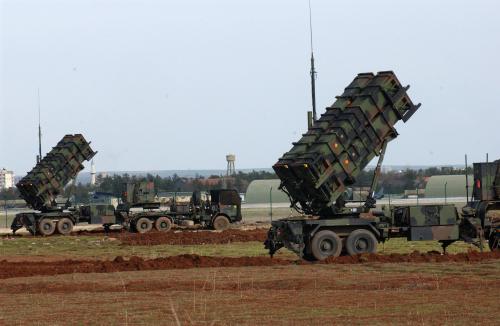
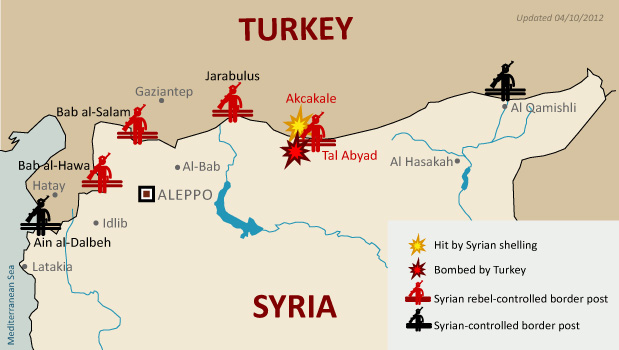
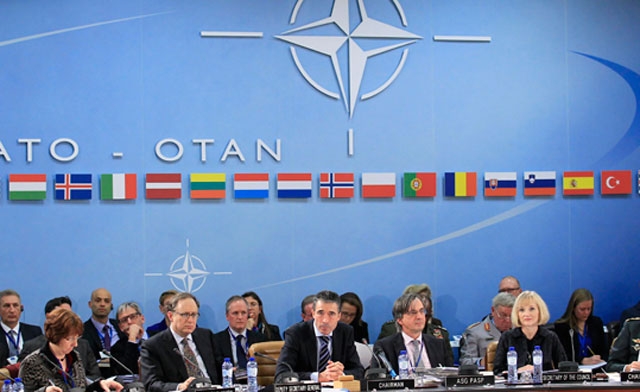
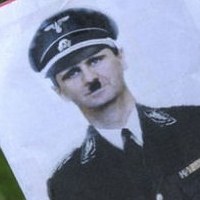
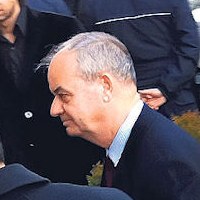
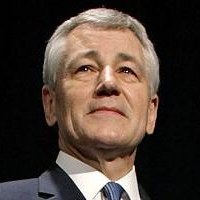
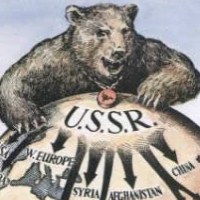
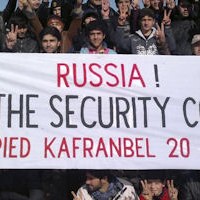




Latest Comments
Hello Mike, Thank you for your positive feedback to the article. I felt there wasn’t too much critical analysis of ...
Thanks for this considered and well constructed article. A follow up article on the manner in which the editorial contro...
THE CLUELESSNESS OF CLAIMING THAT OBAMA'S MIDDLE EAST POLICIES WERE A FAILURE CANNOT BE FURTHER FROM THE TRUTH, WHAT THE...
As long as Obama is the president of the usa do not trust the us government......
Thank you for an good read....